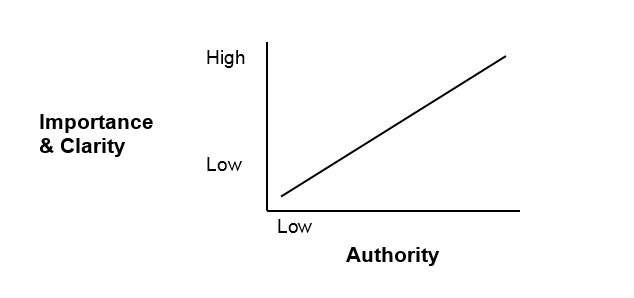I know a particular leader who is very conscientious and has a hard time giving away power to others. To be sure that things are done properly, he often ends up just doing them himself. As a result, he is exhausted.
Recently he told me: “I recognize that leaders should give power away; and that should include giving away both responsibility and authority. But, my difficulty is that I often don’t see what I must do and what is okay for others to do. For example, to make sure we recruit the right people for a training program, I see the need to be deeply involved and to interview the leaders who recommended people, asking them why they made their recommendation, and what are the candidates’ strengths and weaknesses etc. Is this something I should do or should I give it to some of our emerging leaders to do?”
In response, I said this:
Before dealing with leadership, let’s think for a moment about doctrine. To have a proper balance, we must recognize that our doctrines have varying levels of significance and authority. Jesus said there are certain doctrinal matters that are “more important” than others:
… you have neglected the more important matters of the law – justice, mercy and faithfulness … (Matt. 23:23)
By implication, this means there are some doctrinal matters that are “less important.” They are not all equally important (although, of course, nothing in the Bible is unimportant).
Vital doctrines that are clearly taught in the Scripture – such as the deity of Christ, the substitutionary blood atonement, Jesus’ virgin birth and bodily resurrection, justification by faith alone, the inerrancy of Scripture, the triunity of the Godhead, etc. – must never be compromised. These are the doctrines for which you should be prepared to die and which you should defend even if it means causing division in the local church.
However, issues such as the exact method of water baptism, the timing of the rapture, forms of worship, method of taking communion, or the appropriateness of Christians observing Christmas should not be the causes of church divisions. You should be prepared to die for the deity of Christ, but not for someone’s speculation regarding the meaning of Paul’s head covering in 1 Corinthians 11! You should not divide churches over disagreements about the historical identity of the king called “Darius the Mede” in the Old Testament book of Daniel!
The following graphic shows the relationship between a particular doctrine’s importance and clarity and its subsequent authority.
As the importance and clarity of the doctrine increases, its authority increases. However, if a doctrine is relatively less important or clear, then its authority decreases. For the sake of simplicity, let’s say there are “three levels of doctrines.”
Level 1: Vitally important; we should die for them. We must be right about these doctrines.
Level 2: Important, but we can work with people who differ; it’s not the end of the world.
Level 3: Not very important; speculations and human traditions.
Three Levels of Leadership Responsibilities
In the same way, it’s helpful to think of three “levels” of leadership responsibilities.
Level 1: The leader must personally assume these responsibilities. He has no other option. These are absolutely necessary for him, and only him, to do.
Level 2: These things are important, but they can be given away. Of course, there should be clear oversight and coaching, and follow-up by the leader to ensure they’re done well. But they’re not necessary for him to micro-manage. Moreover, if they’re not done perfectly, it won’t be the end of the world.
Level 3: These responsibilities should be given away immediately. And don’t worry about them!
For example, Level 1 responsibilities would include:
- Establishing vision for the whole organization.
- Dealing with major crises.
- Appointing top leaders.
Some Level 2 responsibilities:
- Organizing and leading certain meetings.
- Establishing vision for smaller components of the organization.
- Overseeing many kinds of communication, both internal and external.
Some Level 3 responsibilities:
- Deciding what snacks to put in the break room.
- Ensuring the facilities are neat and tidy.
- Arranging transportation for people.
This framework provides a clear distinction between which responsibilities the leader should and should not take personal responsibility for.
Of course, emerging leaders should always be involved in “Level 1 and 2” matters, in order to stretch them and give them opportunity for growth. The leader should not simply do “Level 1” things in an isolated way – that will be unhelpful for the maturing of the emerging leaders.
Now, back to the initial question: Recruiting the right people for an important training program is quite possibly a “Level 1 decision.” However, the leader should still incorporate emerging leaders into this process – it will be a great learning experience for them.
Save Yourself From Exhaustion
Many church leaders make a big mistake when it comes to doctrine: they consider every doctrine at the same level. This is where things can get dangerous. It becomes a very serious problem when speculations are presented as possessing the same degree of authority as “Level 1” direct statements of Scripture. Due to a lack of theological training, many church leaders and Christians do not have a balanced view of the degrees of doctrinal authority, but they have a “flat” theology in which everything they believe is considered to possess the same absolute authority. In such churches, aberrant speculations are believed and held to as zealously as direct statements of Scripture, and sometimes even more so.
Strangely, in some churches, “Level 3” speculations are stated and pursued as pure and absolute revelations from God, whereas foundational “Level 1” doctrines are disregarded as unimportant. Obviously, you should not give your life for someone’s speculation. Unfortunately, however, in small, “cultic” churches, many believers have done just that.
Similarly, every leadership responsibility is not at the same level. But if everything is treated as a “Level 1” responsibility, the leader will be personally involved in every single thing.
The daily lives of our organizations are filled with “Level 3” responsibilities and if the leader personally assumes responsibility for all of them, three things will happen:
- The leader will burn out.
- A strong ceiling for the work will be created; it can only grow as much as that one leader can personally accomplish.
- Everyone else will be frustrated since they’re not allowed to do much.
We must learn to distinguish the difference between the levels of leadership responsibility. Many of us are doing the wrong things and it’s wearing us out!






